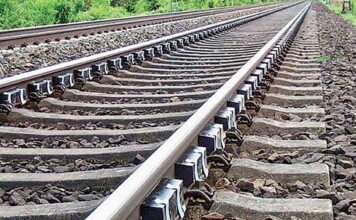The Federal Government said the freight worker will resume back on the old narrow gauge rail line from Lagos to Kano.
On Thursday, Saidu Alkali, the Minister of Transportation, said this in his X (formerly Twitter).
“I am delighted to announce to Nigerians that today, June 6, 2024, the Federal Government led by President Bola Ahmed Tinubu will be officially launching the reopening of this corridor for freight,” the minister said.
According to Alkali, this significant railway route will create numerous opportunities for businesses and facilitate the movement of import and export goods between these crucial regions in the country.
“We intend that this railway service will facilitate the transportation of a substantial number of import and export containers, leading to improvements in transportation services, a decrease in road traffic accidents, lower costs of goods, and a boost to our Gross Domestic Product.
“Our dedication to the continuation and successful conclusion of current projects is guided by the principles outlined in the Renewed Hope Agenda of President Bola Ahmed Tinubu GCFR,” he stated.
He highlighted the unwavering support of President Tinubu for the transportation sector.
“The President has consistently demonstrated his commitment to providing assistance and support for any initiatives that aim to improve the transportation sector in the country. We are confident that if future governments adopt the same forward-thinking political dedication shown by President Bola Ahmed Tinubu, we can realise the Nigeria we aspire to.
“You may recall that during our regular project inspection last month, I mentioned that we plan to resume freight services on the old narrow gauge rail line from Lagos to Kano in June after completing rehabilitation,” he remarked.
He also explained that the government had conducted a trial run moving import containers from Apapa Port in Lagos to Dala Inland Dry Port in Kano.
“We successfully transported numerous 40ft containers from Lagos to Kano in just a few days.”
“This freight rail line testing, spanning a distance of 1,132km, had approximately five locomotive driver changing stations at Ibadan, Offa, Mokwa, Minna, and Kaduna Junction. Through the Nigerian Railway Corporation, we have implemented a regular inspection mechanism to prevent potential vandalism of rail tracks, including the removal of clips and fish plates,” he added.
